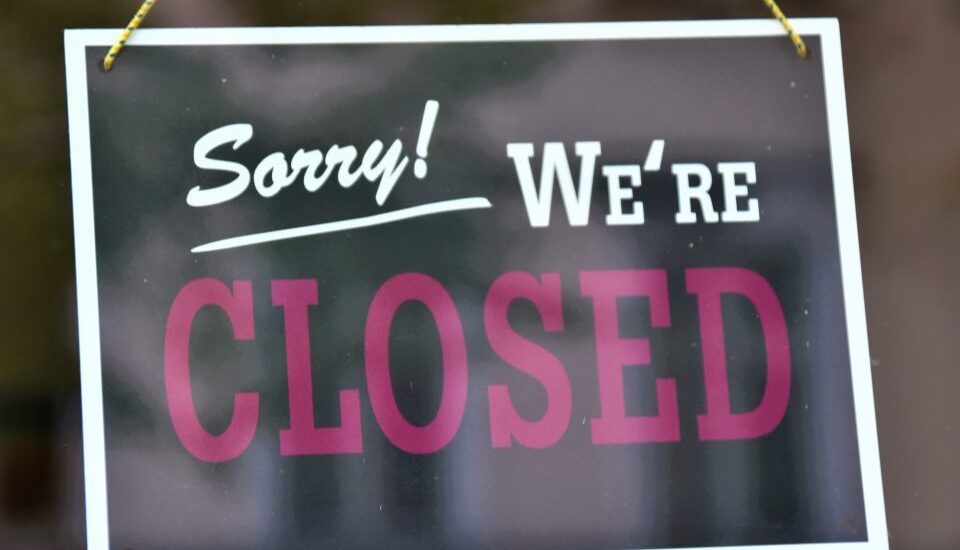- December 4, 2020
- Posted by: Felix Gomez
- Category: News

How do you keep a business going if you have to temporarily close? Insurance! Specifically, business interruption coverage, also known as business income coverage (BI) or business loss insurance. Here’s what you need to know.
Business Interruption Insurance
A business interruption policy helps with operating expenses during downtimes, such as lost net income, mortgage/rent/lease payments, loan payments, taxes, and payroll. Policy limits should cover for more than a few days since getting back in business might take longer than you think. The restoration period is how long a policy will help pay for lost income and extra expenses while your business is being restored. There’s usually a 48 to 72-hour waiting period before it begins and is limited to 30 days, but can be endorsed to extend to 360 days.
A business owner’s policy (BOP) usually combines property, liability, and business interruption coverages. When purchased as a package, it’s typically less expensive than as separate insurance policies and helps ensure you have the proper underlying limits. Some businesses might be ineligible for a BOP because of the risks they pose and will have to buy coverages separately. An endorsement can also be added to a commercial property insurance policy that will extend the policy’s coverage to business interruption losses.
The coverage you need is determined by your gross earnings and projections of future profits. Business interruption insurance costs depend on factors, such as industry, number of employees, amount of coverage, prior claims experience, and location.
Options, Endorsements, And Limits
If a basic policy doesn’t have all the coverage you need, you can add endorsements.
- Contingent business/dependent properties – Coverage for when damage or destruction of non-owned property reduces or terminates your earnings. Losing income and incurring expenses due to interruptions from COVID-19 disrupting supply chains and sales, for example. Eligible dependent properties are:
- Suppliers – Locations that supply the parts, materials, or services needed to manufacture your product or provide your service.
- Buyers – A recipient location that buys or accepts your products, goods, or services.
- Providers (manufacturing location) – A location that manufactures products for delivery to your customers under a contract of sale.
- Drivers (Leader Location) – Stores, sports and entertainment venues, and other entities that draw customers to an area.
- Extra expenses – Covers anything beyond your normal operating expenses that are necessary to keep your business solvent. It can be bundled in a Business Owner’s Policy (BOP), as a separate insurance policy, or as a rider to a commercial property policy. Examples include:
- Renting a temporary place of business while the original is being restored
- Replacement of hardware, technology, and furniture
- Paying overtime for employees or hiring more employees
- Leasing equipment
- Civil authority – Applies when the state, local, or federal government prohibits access to your premises due to a government order as a result of physical damage to an adjacent or nearby property not owned or controlled by you and usually doesn’t exceed two consecutive weeks. Even if an order prohibits or restricts access to your premise, the policy may still require a direct physical to be activated.
- Coronavirus – Coverage for actual loss of business income and extra expenses caused by a government order closing your premises or quarantining all or part of the premises and from government suspension of some modes of public transportation. If dependent properties are included in the coverage, the coverage applies to them as well.
- Utility services – Extends business interruption and/or extra expense coverage to a suspension of operations caused by a disruption of basic utility services to your business’s premises. Endorsements to consider are:
- Time element – If winds damage a power line or a water main breaks, this coverage covers losses, including loss of income and expenses, for a predetermined time limit or until the service is restored.
- Direct damage – Provides protection against damage to your property resulting from an interruption of any of the utility services named in the policy due to a covered cause.
Coverage limitations, such as time, should be discussed with an insurer. If your interruption coverage is part of a commercial property policy, it’ll only cover events named in the policy. Also, the following aren’t covered.
- Items broken due to a covered loss
- Flood or earthquake damage
- Undocumented income not listed on your business’ financial records
- Utilities
- Pandemics, viruses, or communicable diseases (such as COVID-19)
Interruptions can strain your ability to do business but insurance can help. Get in touch with us so we can talk about your options.
